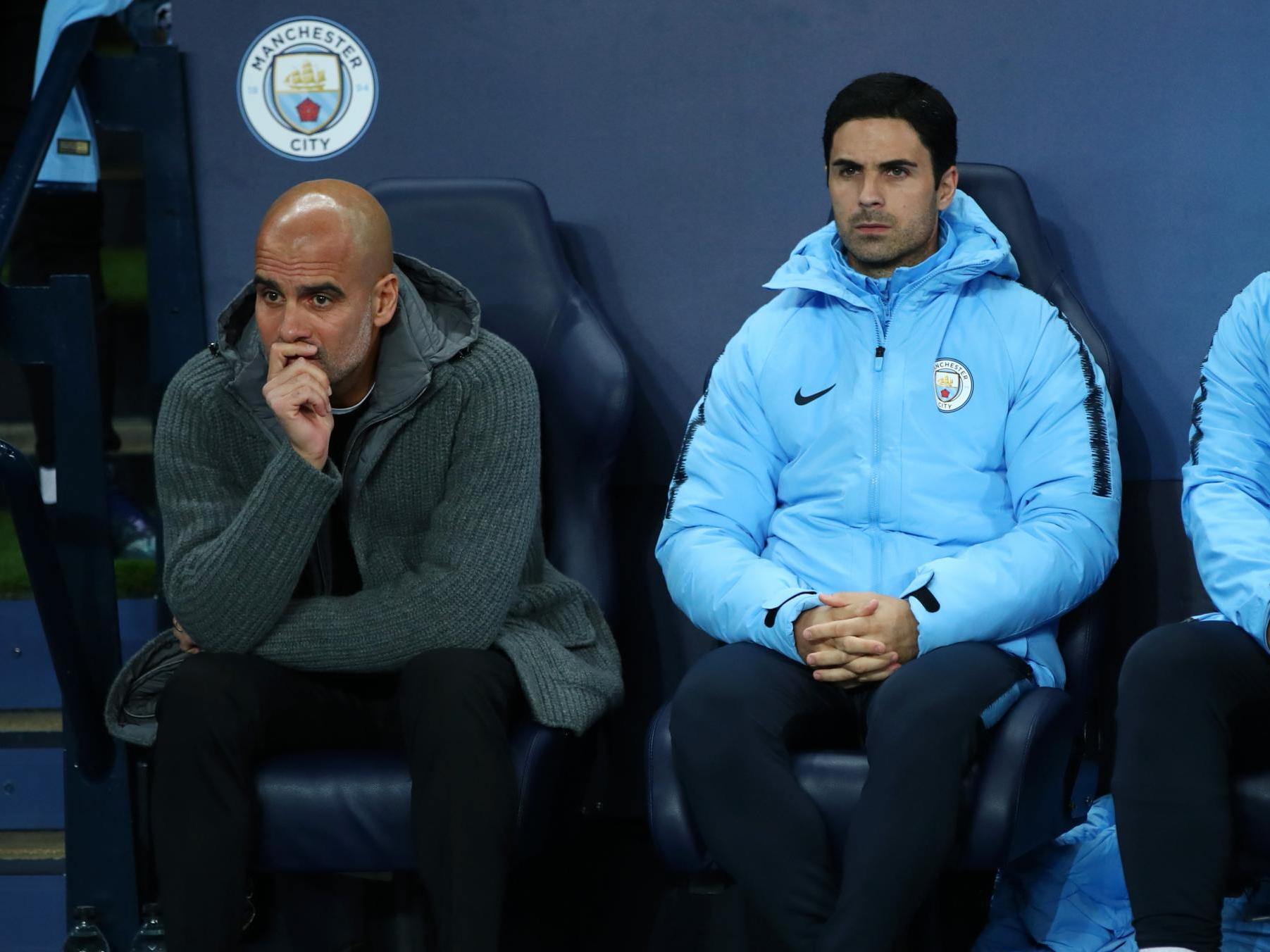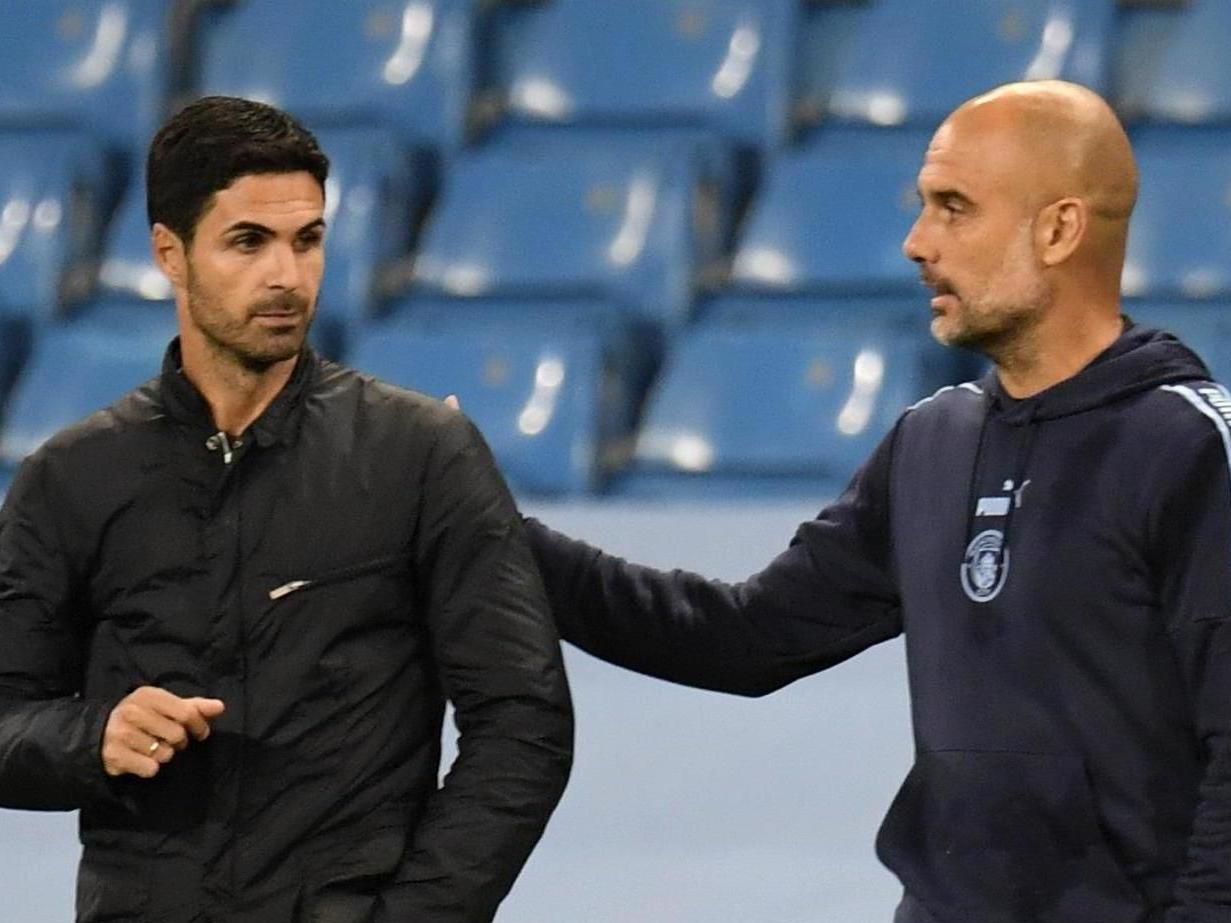Mikel Arteta looks to spark Arsenal revival by landing first punch on mentor Pep Guardiola
The 38-year-old extracted gold from one of the greatest managerial minds, but will find it hard to transplant those lessons at Arsenal as he looks to succeed despite restrictions
Your support helps us to tell the story
From reproductive rights to climate change to Big Tech, The Independent is on the ground when the story is developing. Whether it's investigating the financials of Elon Musk's pro-Trump PAC or producing our latest documentary, 'The A Word', which shines a light on the American women fighting for reproductive rights, we know how important it is to parse out the facts from the messaging.
At such a critical moment in US history, we need reporters on the ground. Your donation allows us to keep sending journalists to speak to both sides of the story.
The Independent is trusted by Americans across the entire political spectrum. And unlike many other quality news outlets, we choose not to lock Americans out of our reporting and analysis with paywalls. We believe quality journalism should be available to everyone, paid for by those who can afford it.
Your support makes all the difference.You could almost hear the admiration climbing out of Mikel Arteta’s throat, coating his words as he tracked back to the first training session Pep Guardiola undertook as Manchester City manager.
It was the summer of 2016 and the Basque was a new addition to the coaching set-up under the former Barcelona and Bayern Munich tactician, who moved to conquer English football after his mastery in Spain and Germany.
The pair dovetailing had shoots in 2012, was broached again in 2015 and was finally over the line a year later.
Arteta had always appreciated Guardiola’s mind, stretching back to when he was a youth player at Camp Nou and Pep was winding down his on-pitch career at the club; both men united by their defensive midfield methodology and a desire to subtly impose themselves on games.
Now, the protege was given a front row view to the genius in the technical area: watching, learning, expanding his panorama on analysis and understanding the art of conveying a message.
“The very first day Pep took training got the whole squad out on the pitch and told them: ‘Manchester City does this when we have the ball and we do that when we don’t have it. And all of them understood exactly how we were going to play,” Arteta recalled in Pep’s City: The Making of a Superteam.
“It was non-negotiable. That talk lasted 15 minutes, but in those 15 minutes City was born. Everyone knew what would be asked of them from then on.”
It will not have been such a short discussion for Arteta to relay his philosophy at Arsenal, having taken over a squad in December that lacked “100% implicación” – commitment – according to his predecessor Unai Emery.
The 38-year-old has used the word “context” often in recent months when his rebuilding job in north London is compared to that of his contemporaries.
There is no symmetry between what Arteta walked into at Arsenal and Guardiola’s inheritance at City. The latter was a club already winning that was crafted behind the scenes to feed the Catalan’s success, with unlimited resources and the likes of Kevin De Bruyne, Sergio Aguero, David Silva and Yaya Toure already on the books.
Guardiola elevated them to unbelievable heights, but part of their victory laps are owed to the man who was meant to be next in line to take charge at the Etihad.
Arteta extensively assisted Guardiola’s adjustment to the division. “He helped me a lot, especially in the first year,” Pep said last September. “He knew the Premier League – like for example in games against Stoke or whatever.
“He can tell me about the players we will face better than myself, because he played against them and was in the Premier League for ten or 11 years. That’s a long time.
“He’s so happy when we win but suffers when we don’t and that is why he tries to find a solution. He’s a guy who has this ability to see what happens.”

Arsenal have the same credence about Arteta’s abilities as Guardiola.
Of the ‘Big Six’ that are in transition, the Gunners require the most elbow grease to restore them as a domestic force and a regular amongst Europe’s elite, but the club have conviction they have made a more astute appointment than Ole Gunnar Solskjaer at Manchester United and Frank Lampard at Chelsea.
Those decisions, especially the former, was powered by sentiment and emotional connection above all, while Tottenham fell for a proven winner in Jose Mourinho and now are the antithesis of the team Mauricio Pochettino built.
As one recruiter of managers put it: “If you were to hire someone for the long-term and they were your four choices, in terms of a having a clear identity, deep understanding of different football cultures and someone who is going to look to improve every area, Arteta would be it. Mourinho is the headline choice, but also the headache choice.”
Arsenal’s thinking wasn’t the typical ex player-turned-manager tale or a case of buying time. If anything, it felt like Arteta was interviewing the club about their ambitions and blueprint moving forward rather than the other way around.
As Guardiola himself has highlighted, the Gunners have a manager with a “special talent to analyse what happens and find the solutions.”
Good thing, too, because there are structural issues at Arsenal and an absence of joined-up vision to remedy.
There is an unhelpful culture Arteta has been eroding, but he still has to reshape a squad that contains exciting young talent like Bukayo Saka, which is weighed down by depreciating assets like Mesut Ozil.
Blunders are still in-built, brain farts that stink out the place too frequent as seen with David Luiz while Sead Kolasinac produced a special stench in the north London derby.
Arteta stepped away from a wonderland at City to a hazardous construction site and yet, thus far, has put some solid bricks in place at Arsenal.

On Saturday, these differing worlds collide at Wembley in the FA Cup semi-finals. It offers Arteta a chance to align early hope with tangible reward – he has more to win and more to lose than his mentor.
City have the potency to pick Arsenal off at will, but the Gunners will have extracted encouragement from Wednesday night’s 2-1 triumph over Liverpool.
It was an atypical win, but had shades of promise. Two of Arsenal’s three shots on target materialised directly from Virgil van Dijk and Alisson errors – those mistakes punished by Alexandre Lacazette and Reiss Nelson in an unlikely victory.
It was not the Arteta way – 31% possession, no offensive teeth, waiting for the opponent to fumble for any fortune – but it showed a new face.
“The gap between Liverpool and us is enormous in many areas, we cannot improve it in two months,” he conceded afterwards. “But the gap in accountability, energy, the commitment and fight is now equal. And before it wasn’t. With that, we can create something.”
There was positional discipline and resolute defending in a match they were dominated in, but still did what was required to win.
It was Arsenal’s first league victory against the team at the top of the table since February 2016, and even though Liverpool suffered the expected crash in focus that creeps in when you’re already champions, it will offer belief against City.
And that, in essence, is one of the foundations of any rebuild.
Arteta “can create something” – and there’d be no more poetic stage for his biggest marker yet than against the man he’s absorbed so much from.
Join our commenting forum
Join thought-provoking conversations, follow other Independent readers and see their replies
Comments